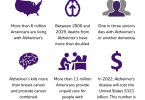By Anna Stjernquist
BU News Service
People across the United States are becoming more health-conscious, at least when it comes to sugary beverages. According to a new study by a Harvard research group, Americans who used to drink a lot of sugary drinks now drink less.
The study, published on Sept. 24, monitored consumption among heavy drinkers, meaning children and adults who would normally drink more than 500 calories a day worth of sugary drinks. This included drinks with added sugar, such as soda, coffee, tea and fruit juice.
People across nearly all social groups were drinking fewer sugary drinks over the years, with children seeing the most significant drop, according to the 13-year-study.
By 2016, children under the age of 19 had lowered their intake by 8%.
The researchers from the Harvard T.H. Chan School of Public Health asked 54,138 people from different states to self-report their diets from 2003 up until four years ago. About 60% were adults, and the rest were under 19-years-old.
Tax levies on sugar-sweetened drinks
Kelsey Vercammen, the doctoral student who led the study, said that they chose this topic because these drinks are the largest source of sugar in the U.S. diet; they also focused on “heavy drinkers” who are most at risk for health issues such as obesity, diabetes and cavities.
“From a public health perspective, they are an important group to monitor, and they may benefit the most from nutrition policies and programs to help reduce intake,” Vercammen said.
Currently, only eight U.S. cities have levied taxes on sweetened drinks; Berkeley, California was the first city to do so in 2014. The consumption of sweetened drinks fell 50% after three years, according to UC Berkeley.
It’s also a topic that’s been widely discussed in Massachusetts.
In March 2019, Massachusetts lawmakers put forward a set of bills that would tax drinks based on their sugar density.

Hidden sugar in tea and coffee
Vercammen stressed that more policy efforts need to target drinks that are not traditionally considered sugary beverages.
“We found that per capita energy intake from soda declined over the study period whereas per capita energy intake from ‘other’ sugar-sweetened beverages, like coffee and tea, increased,” she said.
Dr. Monica Wang, associate professor at Boston University School of Public Health, points out that the study concluded in 2016, meaning it’s hard to gauge if the numbers remained the same and are still relevant.
Wang, who was not involved in the study, also pointed out that the coronavirus pandemic makes the results difficult to read for disrupting health behaviors.
She referred to a study by Total Shape, which showed that the average weight gain among children went up from 7-10 pounds per year this spring in Massachusetts.
“I wouldn’t be surprised if there might be different trends between 2016 and 2020, and especially in 2020,” Wang said.
As to why children reported drinking less sugar than adults, Wang said that there had been increased efforts such as public health campaigns aimed at daycare settings and schools.
Although this is great as a first step, she said, more work needs to be done on subgroups that may be substituting soda and fruit juice with other sugary drinks.
“If they are not consuming soda, which we now know that they are consuming less of,” Wang said, “what are the other types of sugary beverages that people are now gravitating towards?”






[…] Read MoreAmericans are drinking less sugary drinks, new study suggests – Boston […]